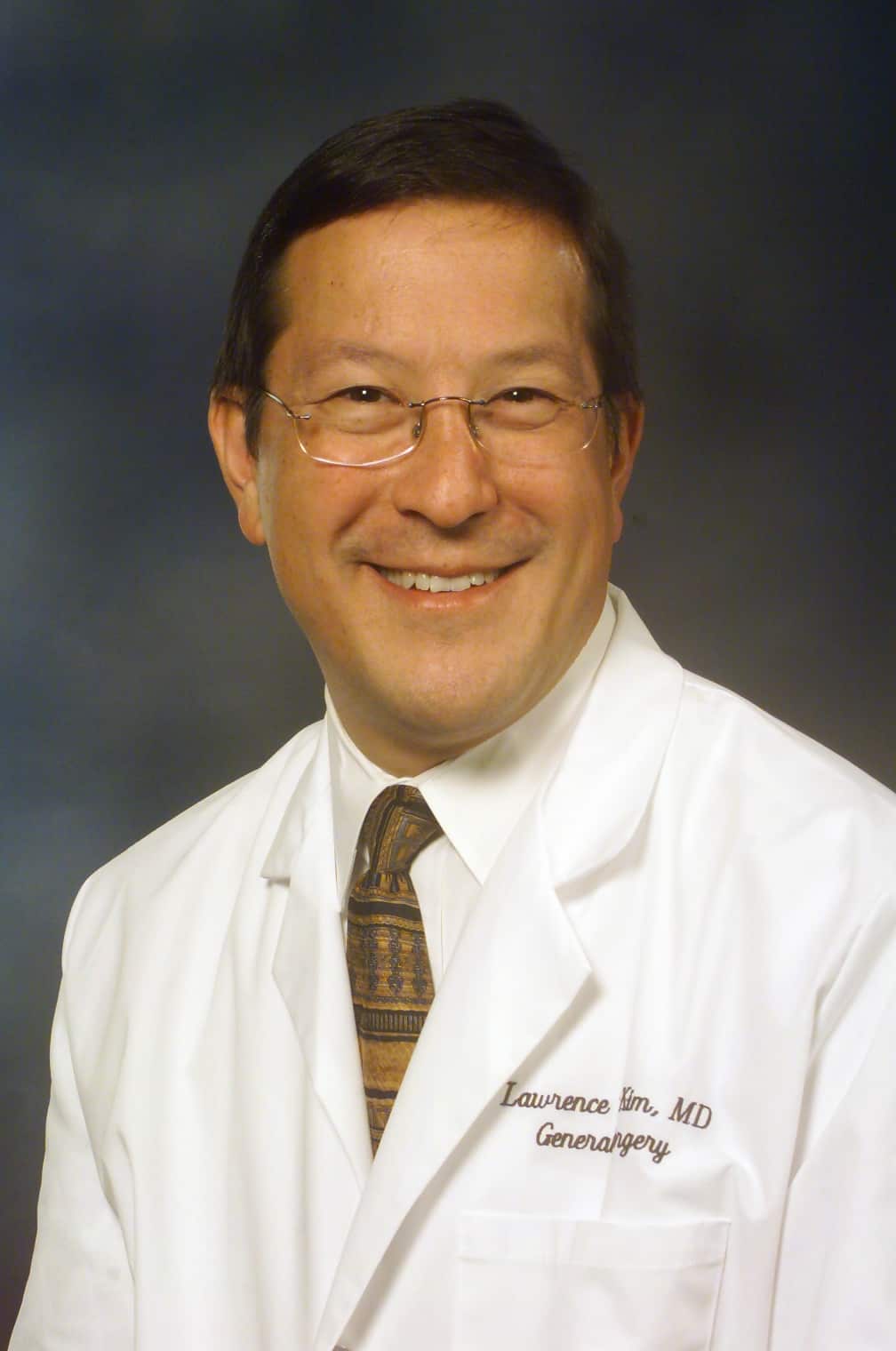Summer in Kenya an Eye Opener for First-Year Medical Student
| 
UAMS medical student Spencer Morse, seated, visits with a patient (red bandana) at a mobile clinic in Kenya. Translators are to the left and right of Morse.

UAMS’ Lawrence Kim, M.D., is leading fundraising efforts to enable first-year medical students to receive travel stipends.
Jan. 4, 2012 | On a two-month trip to a mountain village hospital in Kenya, Spencer Morse witnessed suffering and death on a scale not seen in the United States.
Morse, who had just completed his first year in the UAMS College of Medicine, saw premature newborns who couldn’t be saved, many HIV positive patients, and people who arrived at the Kapsowar hospital with infections and diseases that were either too far along to treat or couldn’t be treated due to a lack of resources.
In other words, it was exactly the eye-opening experience that UAMS’ Lawrence Kim, M.D., had envisioned for Morse. Kim, a UAMS surgeon, is the driving force behind a new travel stipend that paid for Morse’s mission last summer.
“The point is to expose first-year students, who haven’t finalized their career paths, to this kind of experience,” Kim said. “He can build his career around it and then he will educate others, so you’re not just getting the benefit of that one experience, you’re getting the benefit of a decades-long commitment and the education of others.”
The stipend is the first of its kind for first-year College of Medicine students. A committee formed by the Department of Surgery selected Morse from a pool of 15 applicants.
Kim said private funds for a 2012 travel stipend have been raised and he hopes the trip can someday be endowed permanently.
Funding for Morse’s trip came from private donations, including Poe Travel of Little Rock, which paid the airfare.
In his first week at the village hospital, Morse scrubbed in during surgeries and handed instruments to the surgeons. Soon he was rounding ahead of the doctors, taking notes on patients’ conditions, similar to the duties of third-year students at UAMS.
“We saw lots of infections,” said Morse, 26, now in his second year. “It was their winter when I was there – pneumonia season – and there were a lot of child patients. We also saw a lot of premature infants and maternity complications that were pretty bad. We saw a lot of children die, and a few of my adult patients died while I was there.
“Often we didn’t have drug supplies or lab tests that we needed, so it made medical treatment difficult. But surprisingly, even with limited resources, it was pretty amazing how many people we did end up helping.”
Morse was struck by the vast divide between living conditions there and the United States. He routinely saw people who were malnourished. Getting clean water was an everyday challenge.
“Having been there and seen the suffering and the great need, it was difficult for me to come back here and see how much we have in comparison,” he said.
As a result, Morse is already thinking about going back.
“It was a life-changing experience. You can’t help but be called back to help,” he said.
While the experience will help shape his medical career, Morse is still working through his options.
“It changes every day,” he said. “The more you learn the more you are interested in different fields.”